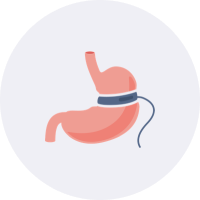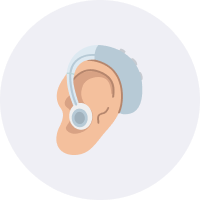As the weather warms up and we shake off the winter chill, spring brings a fresh opportunity to refocus on your health and wellbeing.
When life gets busy, finding simple and effective ways to boost your energy is crucial.
Taking a break from your daily activities to walk outside serves multiple purposes—spending quality time with your family, getting some vitamin D and refreshing your mind and body.
Walking also offers numerous health benefits, from combating obesity to preventing chronic diseases, all by simply putting one foot in front of the other.
Why walking works
Walking is an incredibly effective form of exercise. According to the Heart Foundation, brisk walking for just 30 minutes a day can reduce the risk of heart disease, stroke and diabetes by 30% to 40%. This is an impressive benefit for such a simple and low-effort activity.
Health benefits of walking
Walking provides numerous of health benefits:
Reduces stress
Improves digestion
Enhances balance and coordination
Controls blood pressure
Strengthens bones
Lowers the risk of chronic diseases
Improves circulation and heart health
Strengthens the immune system
Boosts mental health
Managing weight
Incorporating a brisk walk into your daily routine can significantly help manage weight, especially when combined with other healthy habits.
Australia’s Physical Activity & Sedentary Behaviour Guidelines recommend that adults aged 18-64 engage in 150 to 300 minutes of moderate-intensity physical activity each week. Brisk walking is a perfect example of this - it’s an activity where you can talk comfortably but not sing. Walking briskly for 30 minutes can burn approximately 75 calories each day. The faster and further you walk, the more calories you burn, aiding in weight management.
Lowering blood pressure and cholesterol
As reported by the Heart Foundation, about 42% of Australians live with high cholesterol and 1 in 4 adults struggle with high blood pressure.
Walking can make a big difference for these heart conditions! Research shows that every 1,000 steps you take each day can lower your systolic blood pressure by about 0.45 points. So, if you aim for 10,000 steps a day—roughly 1.5 hours of walking—you could see a reduction of 2.25 points in your blood pressure. Just remember to check with your doctor before starting any new exercise routine.
Walking also benefits your cholesterol levels. Regular brisk walks increase good cholesterol (HDL) and lower triglycerides. To lower bad cholesterol (LDL), you usually need a healthy diet and some weight loss.
Mental health and social benefits
Walking not only benefits physical health but also boosts mental well-being. A 30 minute walk each day can reduce stress, alleviate anxiety, and boost the production of endorphins—brain chemicals associated with happiness.
For the elderly, walking fosters social connections and improves balance and coordination, leading to better mental health outcomes and fewer injuries from falls.
Walking is a simple yet powerful way to enhance your overall health and well-being. Whether you're looking to manage your weight, lower blood pressure, or improve mental health, incorporating a daily walk into your routine can lead to significant health benefits. So, lace up your walking shoes and take the first step toward a healthier, happier you.
This blog article was supported by AI generation and, while intended to be helpful, should not be relied upon as individual health advice. Always consult a healthcare professional before making health decisions. The accuracy, completeness, or recency of the information cannot be guaranteed and we cannot be held responsible for any loss incurred from acting on this information. Content developed in partnership with Health and Wellbeing Queensland.
Information source: https://hw.qld.gov.au/blog/health-benefits-of-walking/
























